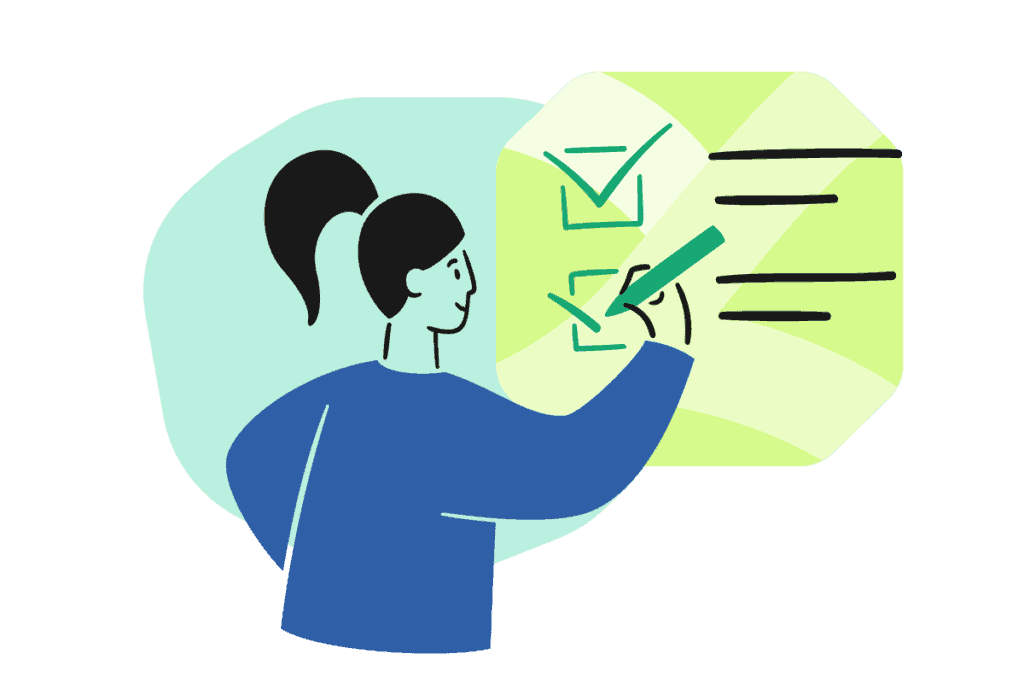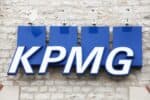Most accounting interview questions include knowledge-based and technical questions designed to ensure you have the skills needed to succeed as an accountant. To get you interview-ready, we’ve gathered some common accounting questions and answers for interviews.
Questions About Your Accounting Background
Like most interviews, accounting interview questions start with getting to know each other. You’ll likely get an overview of the role and the company and some details about the interviewer’s background in their position.
1. Tell me about yourself.
The “tell me about yourself” question may seem daunting, but preparing three to five key points beforehand can help. The interviewer will want to know your educational background, relevant work experience, and any significant accomplishments you’ve had along the way.
This question also gives you space to explain why you’re interested in accounting and why you want to work for that company specifically.
>>MORE: Check out some common interview questions for all careers.
2. What types of accounting software programs are you familiar with?
If you know the company uses specific accounting software you’ve never used, focus instead on the software you know and highlight how transferable those software-specific skills are. Never lie about your level of familiarity, though. It’s a good idea to look into the software the company uses before your interview so you can understand the basics of how it works and its core functions — this will make it easier for you to explain your confidence in learning the new software quickly and effectively.
3. Describe an accounting process you’ve developed or improved.
This may be a challenging question to answer if you’re early in your career. However, the interviewer wants to see that you have critical thinking skills and are open to innovating established practices. For example, you can describe an instance in a past role or internship where you sought to improve a workflow or developed a new way of doing something.
For those with more experience, it’s important to focus on an instance when you changed or created a process that directly impacted the company. You could talk about a time you noticed a specific report was consistently taking more time than expected. But, you discovered a way to make the process more efficient, saving the company time (and money).
4. When facing a tight deadline, how do you react?
If you have previous accounting experience, this is a great opportunity to discuss moments when you encouraged teamwork among your peers to get an end-of-year statement out on time. This question is also a time to talk about your time management skills.
Even if you don’t have much accounting experience, you can talk about how you work under pressure and what systems you have to ensure everything goes smoothly.

Expert words of advice
Use the STAR method to describe situations, show what actions you took, and explain how you resolved the problem.
5. How do you organize and prioritize your daily tasks?
Accountants need a high level of organization — nothing can slip through the cracks. This question seeks to figure out what methods of organization you use and how effective they are. You can talk about to-do lists if those work best for you. Additionally, if you have experience as an accountant, you can explain how you split your time between clients, accounting procedures, and working with your team.
6. Do you have your CPA?
Having a certified public accountant (CPA) license can sometimes give you an edge over other applicants, but don’t be ashamed to tell the truth. If you’re working toward your CPA, tell the interviewer, perhaps including which sections you’ve passed so far or what your timeline to completion looks like (e.g., will be completed within six months).
The CPA license isn’t the only certification you can mention, though. Other relevant accolades, like certified management accountant (CMA) or chartered financial analyst (CFA) certifications, can also boost your application depending on your accounting career path.

NY Jobs CEO Council Financial Analyst
Analyze a company's financials as an analyst on the technology team in this free job simulation from the NY Jobs CEO Council.
Avg. Time: 2 to 3 hours
Skills you’ll build: Financial analysis, critical thinking, problem solving, Excel, communication
7. How do you present information to coworkers and peers outside of the finance department?
This question aims to see how well you can communicate complex information to people unfamiliar with the jargon of accounting. One way to answer this is to describe a specific situation where you used storytelling skills and visual aids to explain a new procedure or the findings of a report to managers in a different department.
You can also list skills and tips you use when communicating with people outside of the finance team, like using PowerPoints and infographics, avoiding too many facts and figures, and having your presentation reviewed by a colleague to ensure it isn’t confusing or jargony.
>>MORE: Learn how to improve your presentation skills.
Find Your Career Fit
Learn which accounting career path is right for you with our free quiz!
Technical Accounting Questions
Once the interviewer has an idea of your background, they’ll want to learn about your relevant skills and experience by asking you technical and knowledge-based accounting interview questions.
1. What are the different types of accounting?
There are two main types of accounting: financial and managerial. Financial accounting primarily deals with reviewing and reporting transaction information, while managerial accounting is much broader, looking at a company’s financial health and future.
However, you can also discuss some other specialties within accounting. For example, cost accountants focus on production and sales costs, typically for industrial companies. Tax accountants, on the other hand, handle registering, preparing, and filing tax returns and tax payments.

KPMG Career Catalyst: Tax
Explore a career in tax accounting with KPMG's free job simulation.
Avg. Time: 3 to 4 hours
Skills you’ll build: Tax research, technical writing, critical thinking, data modeling, Excel, manipulating data, Excel modeling, effective communication, team building, tax types
2. Define and explain the three financial statements.
The three types of financial statements are balance sheets, income statements, and cash flow statements. These statements are a big part of every accountant’s job — reading,interpreting, and creating them.
Your answer should include the purpose of each statement and what each statement shows:
- Balance sheets show liabilities, assets, and shareholder equity. A balance sheet shows a company’s financial position at a given moment. Assets should be equal to liabilities and shareholder equity, or, in other words, balanced.
- Income statements are typically quarterly or annual reports that break down a company’s operations. This statement shows a company’s revenue, expenses, and taxes, resulting in the net income or profit.
- Cash flow statements show a more detailed overview of a company’s incoming and outgoing cash than the income statement. This statement is useful for determining if a company can continue paying its bills and invest in growth down the line.
>>MORE: Studying accounting? Explore the best career options for accounting majors.
3. What’s the difference between accounts payable and accounts receivable?
Accounts receivable are assets — the company will collect this money in exchange for already sold goods or services. Accounts payable are liabilities — the company owes this money to someone else for goods or services.
4. When would you capitalize a purchase, rather than expense it?
Generally speaking, a company expenses a purchase if it will consume the purchase immediately — it’s not an investment. Purchases that will be consumed over a longer period of time should be capitalized.
For example, if the company plans to use the purchase for more than a year or two, such as a company car or a new piece of machinery, it should be capitalized. Immediate expenses, like employee salaries or paper for the office printer, should be expensed.
>>MORE: Learn more about expenditures.
5. What are some ways to reduce human error in the accounting department?
There’s no right or wrong way to answer this question. You can focus on specific skills that can help the team prevent inaccuracies, such as attention to detail, time management, and organization.
You can also focus on software you find useful for catching or preventing errors or ways you’ve automated certain tasks to keep everything accurate. Additionally, you can discuss the key areas to pay attention to, such as invoices, receipts, and tax documents.

PwC Tax
Explore tax accounting and learn in-demand accounting skills with this free job simulation from PwC.
Avg. Time: 3 to 4 hours
Skills you’ll build: Reviewing a trial balance, chart of account mapping, book to tax difference (BTD), calculating M-adjustments, research, workpaper preparation, data analysis, tax research
6. What is the accounting equation?
The accounting equation is a core principle of accounting. It states that a company’s liabilities and equity are equal to its assets. The accounting equation also relates to the balance sheet, which shows a company’s assets, liabilities, and equity.
7. Define EBITDA and how it relates to accounting.
EBITDA stands for earnings before interest, taxes, depreciation, and amortization. EBITDA is a measure of a company’s financial health because it gives insight into how well a company can generate money.
While every accountant should be familiar with EBITDA, it is crucial for certified management accountants (CMAs) since they deal primarily with the health and future performance of a company.
8. What is working capital?
Working capital is a company’s current assets minus current liabilities. Working capital is a company’s money to use for day-to-day operations.
Finance vs. Accounting?
Discover whether finance or accounting is right for you with our free quiz!
9. How would you determine if a company can afford its short-term commitments?
The best way to determine a company’s ability to cover short-term commitments is by using the current ratio. The current ratio involves dividing the company’s current assets by current liabilities. This ratio is sometimes referred to as the working capital ratio because it determines how much of the company’s liabilities will be covered by current assets.
>>MORE: Learn more vital formulas and the top accounting skills for your resume.
10. What is PP&E, and how do you record it?
PP&E stands for property, plant, and equipment, or a company’s physical, long-term assets, such as buildings, furniture, and vehicles. PP&E is recorded on the balance sheet. You should account for any depreciation and consider any capital put into these assets, such as additions or upgrades.
11. What is the difference between deferred revenue and accounts receivable?
Deferred revenue is money the company has received but has not earned. For example, imagine a client pre-pays for their driveway to be repaved. Their payment is counted as deferred revenue until the company fulfills the service and repaves the driveway.
Accounts receivable is the opposite — this is money customers owe the company for services already provided. If a company repaves a customer’s driveway but the customer hasn’t yet paid for it, the due payment counts toward accounts receivable until the invoice is fulfilled.
12. How would a large purchase, such as a new piece of machinery, affect the three financial statements?
To fully answer this question, you’ll need to ask for further information about how the machinery was financed, when the machinery was purchased, and whether the answer should be for the time of purchase or for a later date.
If a company purchases a $5,000 piece of machinery on credit, that’s a $5,000 liability and a $5,000 asset. Accountants add the machinery’s value to the company’s PP&E on balance sheets, the cost of the machinery is an expense on income sheets, and record the transaction on cash flow statements. Additionally, the machinery’s depreciation will affect all of the company’s financial statements.
13. Describe the difference between accrual accounting and cash accounting.
The accrual basis of accounting means money is counted even if the cash hasn’t been received yet. For example, if a company allows for deferred payments, the promised or owed money will still be counted even if it won’t be collected until a later date.
Cash basis accounting only counts money once it has been received. So, if a company uses deferred payment plans, the money for those services will not be counted as revenue until it has been received by the company.
>>MORE: Learn accounting skills from top employers with Forage’s accounting job simulations.
Tips for Acing Accounting Interviews
Practice
Practicing your responses to commonly asked accounting interview questions beforehand can help you feel more comfortable going into the interview. Looking at the top accounting skills and brushing up on some you could be more confident about can be helpful, too.
>>MORE: An accounting internship can help you build the right skills to get hired. Learn how to get an internship even if you don’t have experience in accounting.
Research
Do as much research as possible about the company and the position. This research will allow you to ask the interviewer questions and show you have a strong interest in the position. Additionally, research can help narrow down what you need to practice. For example, if the company uses a specific type of software, you can look into it and see if your skills in other programs are transferable.
Prepare
Preparation is key for any interview. While research and practice are part of preparation, you should also prepare yourself in other ways: get a good night of sleep, plan ahead to make sure you arrive on time, have any documents you need (resumes, cover letters, notes) ready to go beforehand, and try to keep a positive attitude!
Find more tips for acing your interviews and learn the best way to pitch yourself in interviews with our free Career Readiness course, launched in partnership with the National Urban League.
Image credit: Canva

